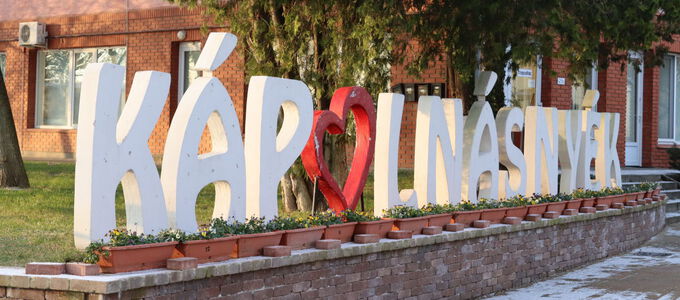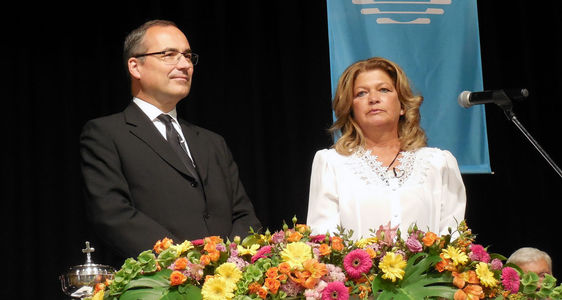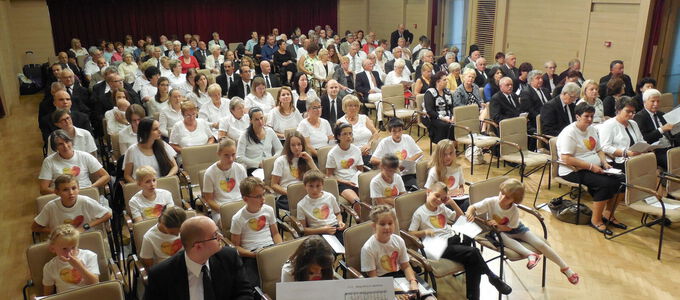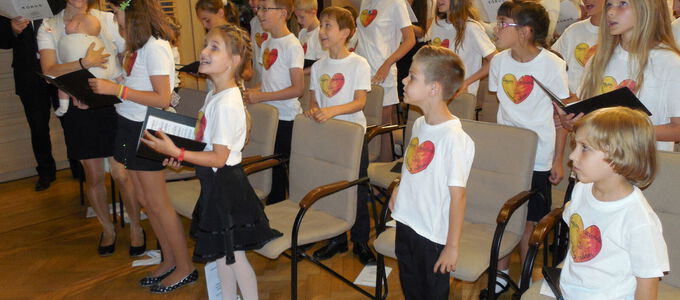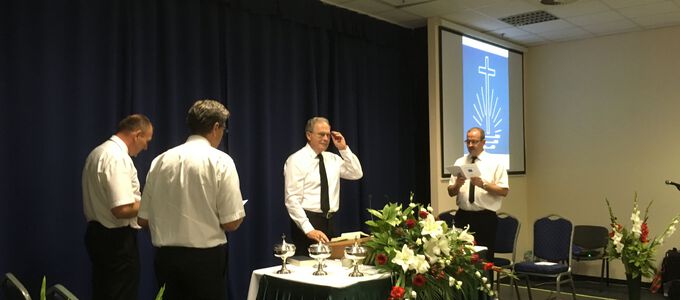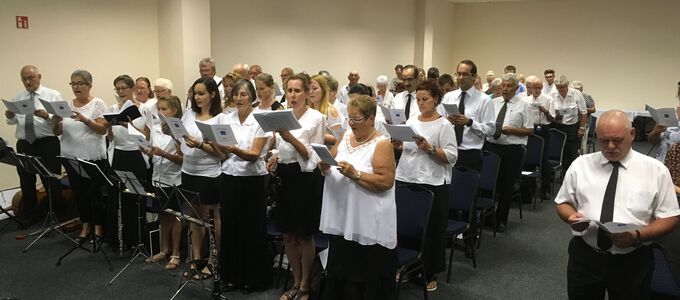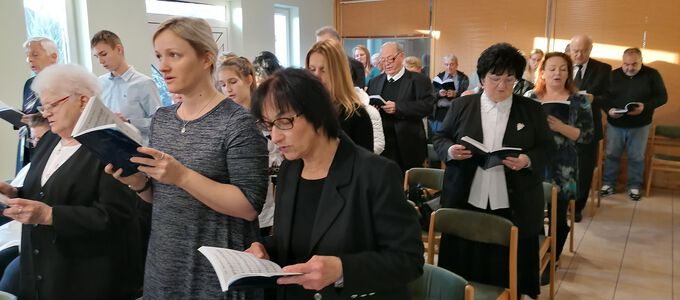Meeting in a place called “chapel”
A small flock and a tremendous effort: neither long distances nor pandemic-related restrictions can keep the Hungarians from coming together for a divine service that is doubly special.
Some of the brothers and sisters have 600 kilometres to travel. The members from the entire country will be coming to Kápolnásnyék, situated between the capital of Budapest and Lake Balaton. This is where the members will be gathering together with Chief Apostle Jean-Luc Schneider. Fittingly, the name of the village includes the Hungarian word for “chapel”, and the coats of arms also pictures a small chapel.
An elderly sister who will be travelling to attend the service was asked whether the trip will not be too much for her. “Oh no,” she said, adding that she had booked her carer to accompany her on the trip. This is what District Elder Michael Wall from Austria, who is responsible for the brothers and sisters in Hungary, told nac.today.
Long distances are nothing new for the dozen or so local ministers. The New Apostolic Church in Hungary has about 430 members, spread across the whole country. That means that officiants regularly do double shifts. A service on Sunday morning, then 100, 200 or 300 kilometres on to the next congregation—and back in the evening. “The motorways are good, but the country roads are not necessarily easy on the back.”
Divine services in the time of Covid
District Elder Wall had the hall in Kápolnásnyék rented early on already. And he is very glad about that. Because in times such as these you never know how much space you will actually need to keep your distance and comply with Covid restrictions. The virus has hit Hungary hard. Based on its population, the country on the whole has the world’s second highest rate of Covid deaths worldwide.
From scratch and without any special equipment or previous experience with streaming live services, a small team set up online broadcasts. The District Elder is especially grateful to a young brother, Fábián Rab, who has been accompanying his father, District Evangelist Mihály Rab, throughout the country since the beginning of the pandemic to stream divine services so that the brothers and sisters can follow them at home on the internet.
This is how it happened that even in faraway North America a native Hungarian got the chance to watch a divine service in Hungarian for a change: the retired District Apostle Leslie Latorcai from Canada.
A beginning and a new start
For a few months now, the Austrian District Elder Wall has been able to travel to Hungary again. The choirs are also allowed to sing again. Despite long distances and Covid restrictions the choir members were able to practise together. “Only two choir practices for a Chief Apostle service are actually madness,” the District Elder smiles and adds, “But we are so happy that this is possible at all.”
This will be the second time that Chief Apostle Schneider visits Hungary. His first visit was in June 2015 and took him to Budapest. Chief Apostle Fehr, the first Chief Apostle ever to visit Hungary, was there in August 1990.
The history of the New Apostolic Church in Hungary goes back to 1872 when Apostle Peter W. L. Stechmann travelled to Budapest. His two years of work initially showed no lasting effect.
A number of firsts
The first congregation came about shortly before World War Two. In 1935, a Hungarian family had returned home, who had become acquainted with the New Apostolic Church in Berlin, Germany. Deacon Josef Gutweniger was the minister from Austria who travelled to Budapest to look after the small flock there.
In 1937 Apostle Rudolf Schneider sealed three Hungarians, among them a certain András László from Budapest. He was ordained a Deacon in 1938 and from then on conducted most divine services in the country. The membership grew and so did the number of congregations. In 1985 the New Apostolic Church bought its first own church building in Budapest.
The closest Hungary came to a Chief Apostle service before the actual first visit of a Chief Apostle was in 1990, namely the transmission of the Pentecost service from Vienna, Austria. Three congregations were able to receive the broadcast of the service from Austria—as many as in Austria and Yugoslavia together.


